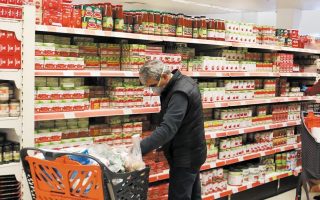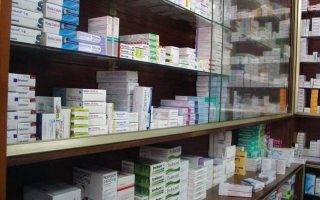Greek PM, FinMin hail better-than-expected GDP data

Despite being badly shaken, the Greek economy has shown resilience in the face of unprecedented health, social and economic adversity, Prime Minister Kyriakos Mitsotakis and Finance Minister Christos Staikouras said in comments on a report on gross domestic product released by the Hellenic Statistical Authority (ELSTAT) on Friday.
“Despite a heavy reliance on tourism, GDP figures published today show that the Greek economy was more resilient than many expected in 2020. Alongside our handling of the COVID-19 crisis, we are shattering stereotypes,” Mitsotakis commented in a tweet.
Staikouras said that the GDP contraction rate was less than the forecasts because of the revision of the previous quarter and the good performance in the fourth quarter, which compared with the third quarter of 2020 seemed to be the best performance in Europe.
“These figures are proof of the correctness of our economic policy,” Staikouras said, warning, however, that 2021 is going to be a difficult year.
“The challenges are many and great, but we can be realistically optimistic since, with the help of science, we are building a protective wall through vaccinations and moving towards a return to normalcy in social and economic life,” he noted.
Greece on Friday announced better-than-expected figures for 2020, with the country’s GDP contracting by 8.2% to 168.5 billion euros from 183.6 billion in 2019.
In its report, ELSTAT said that Greek GDP shrank by 7.9% in the fourth quarter compared with the same period in 2019, but rose 2.7% in comparison with the third quarter of 2020.
More specifically, final consumption spending fell 3.4% (household spending down 5.2% and general government up 2.7%), private investments (gross fixed capital investments) rose 4.9%, exports of goods and services fell 21.7% and imports of goods and services fell 6.8%.
On a quarterly basis (fourth quarter 2020-third quarter 2020), final consumption spending fell 1.4%, gross fixed capital investments rose 1%, exports of goods and services rose 31.8% (goods up 4.9% and services up 10.3%), while imports of goods and services eased 3.6% (goods down 1.2% and services down 9.9%).
“In these conditions, with efficient, socially sensitive and fair economic policies, along with the anticipated start of money inflow from the Recovery Fund, we will work to counteract the repercussions of the crisis,” Staikouras said. [ANA-MPA]





